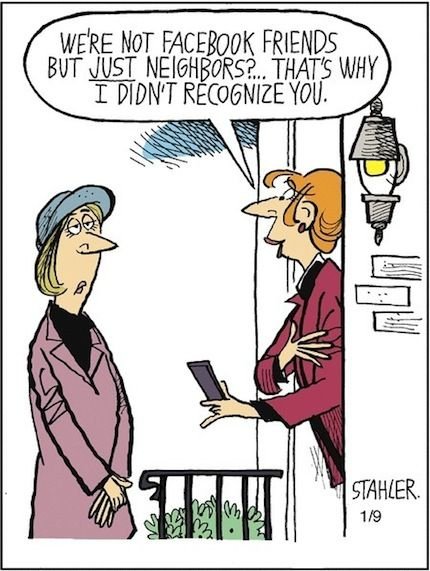Just Neighbors
One of the things that I love about social media (which I sometimes hate, read on…) is that people will share information that I wouldn’t have otherwise found. While I listen to a ton of podcasts, I don’t subscribe to Rich Roll’s. It is frankly longer than I like but if a friend shares a specific episode, I am always grateful for the reminder that I love his work.
This week, I have been listening to Roll’s interview with Max Fisher, a New York Times investigative reporter who wrote the book “The Chaos Machine: The Inside Story of How Social Media Rewired Our Minds and Our World.”
The interview is over two hours long so I have not finished it yet and while the whole piece is fascinating, a part of the conversation that really stuck out to me revolved around how conversations are or are not moderated on social media.
Fisher describes the difference between platforms by saying the following-
“People work very hard at moderating the conversations which is what we do in the real world. We have a sense of norms that we enforce formally and informally to try to encourage what we think will be a constructive conversation.”
This concept hit hard. We moderate in order to mimic the real world so that we can have constructive conversations. When we first experienced mean and untruthful people on the internet, it was annoying. Now? It is dangerous.
From Twitter to local Facebook groups, the lack of civility and downright lying that we witness daily feels frighteningly normal. Like the ‘oh there they go again’ kind of normal. And the difference between sites that are moderated and those that aren’t is staggering. We have two Facebook groups in town, one with a clear set of guidelines and one without. Next week, there is a highly contested local election so the activity in both groups is high and the topics discusses overlap but the similarities stop there.
Reading posts and discussions in the moderated group feels like as Fisher says, ‘real life.’ People ask questions, they disagree respectfully and people who don’t follow the clearly stated rules are asked to leave. The unmoderated group feels like watching a reality TV show. Many times I will say, ‘no- they didn’t really say that did they?’ The confusion over what is true and what is not, is rampant. People call each other names and others pile on, feeling emboldened to do the same.
I worry about the impact on unmoderated speech not only locally but also throughout our country. Your understanding of election issues ahead of the midterms completely depends on where you are getting your news and how critically you chose to read or watch it. Obviously, critical reading and watching has always been important but now? Now it feels simultaneously more difficult to do and significantly more important.
Sadly, I do not know that there is a solution to the problem. Moderating large platforms is impossible. While solid moderation can mimic real life, it is not realistic to have a ‘real world constructive conversation’ with millions of people, or even dozens of people, at the same time. Social media is not the real world yet it is where we (or at least I) spend a shocking amount of time and where we get a lot of our information.
The cartoon above rings painfully true. How many of our neighbors do we feel like we know having only met them on Facebook? And disturbingly, how few of our ‘real’ neighbors have we had a conversation with recently?
Where we live, it is going to be a beautiful weekend. Perhaps we can make it a goal to peak over the fence and say hi. Am I naive enough to think this will fix the problem? Nope. But do I think we need to have the hope of fixing it and this is a start? Yes I do.

